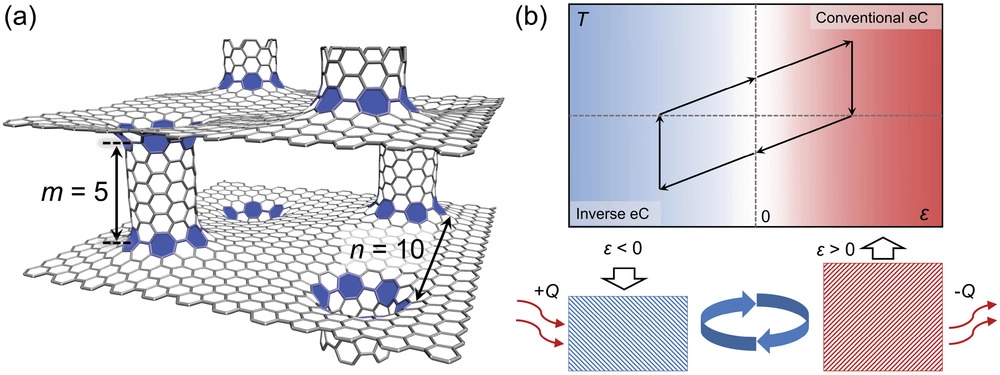Advanced Functional Materials , 2022, 2203866
Abstract:
Solid-state cooling exploits the thermal response of caloric materials when subjected to external physical fields and represents a promising alternative to conventional refrigeration technologies. However, existing caloric materials are often limited by relatively small caloric response and hysteresis issues rooted in first-order structural transitions. Here, colossal and reversible elastocaloric effects near room temperature in superelastic graphene architectures are predicted by thermodynamic analysis and atomistic calculations. The estimated adiabatic temperature change can reach a value of 155 K under a compressive stress of 0.7 GPa in a wide temperature range of around 300 K, yielding outstanding elastocaloric strength and efficiency. More unique is that both cooling and warming can be realized in the materials by applying tensile and compressive strains to host conventional and inverse elastocaloric effects, respectively, with almost no fatigue behavior and hysteresis effect. Such unprecedented elastocaloric performance results from a strain-induced large change in configurational entropy in the graphene architectures. These effects are potentially extendable to other superelastic nanomaterials and hence suggest new material settings for developing high-performance solid-state refrigerants.

Link: https://doi.org/10.1002/adfm.202203866
--校内链接--
--校外链接--

微信公众号